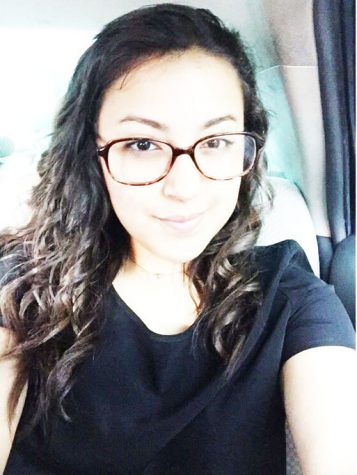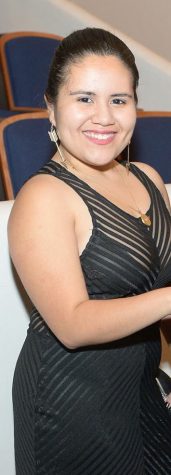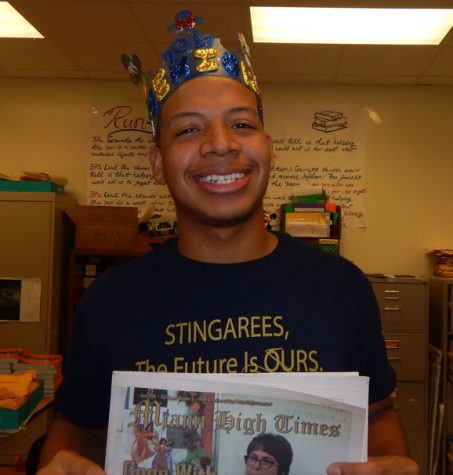Glasses or Contact Lenses?

Have you notice students who squint in class? Bad vision means slower learning and difficulties understanding. If students can’t see, they can’t learn.
According to the website for the America Optometric Association, “It has been estimated that as much as 80% of the learning a child does occurs through his or her eyes. Research indicates that 70% of the 2 million school-age children who have difficulty in reading have some form of visual impairment, such as ocular, motor, perceptual or binocular dysfunction.”
Many Miami High students use glasses or contact lenses. Junior Karina Garcia said, “I need glasses because reading without them has given me headaches, and it turns out that wearing my glasses helps my headaches.”
Junior Josue Gonzalez, who needs glasses to see the outside world more clearly, said, “Without them, my life will be difficult.”
Senior Nancy Miranda, who is near-sighted, said, “My eyes are different from each other; my right eye has better vision than the left.”
Some students prefer contacts to glasses. For example, junior Jennifer Tejada, who wears one-a-day Acuvue, said, “I put on a fresh pair every day and then dispose of them at night. Contacts are better because when you look down or up, the rims of your glasses are in the way, Contacts are 100% vision.”
“I see better with contacts,” said senior Flavia Trujillo. “For example, you can see out of the corner of your eye with contacts, but with glasses you have to move your whole head to see.”
Some students, however, like glasses better than contacts. Junior Jean Manco said he prefers glasses because all he has to do is take them off his face. With contacts, it’s more of a hassle.
Junior Freddy Samarriba said, “I prefer glasses since they’re safer. I don’t have to worry about putting germs in my eyes, which are the most sensitive part of the body.”
Karina Garcia said, “Glasses help me see clearer, but also make me look smarter.”
Improving your vision with glasses or contacts comes with a price. Josue Gonzalez, whose glasses, cost around fifty-dollars, said, “I really don’t care about the brand or style. I just care only to see.”
Karina, on the other hand, paid around $300 for glasses with the quality of the Michael Kors brand.
Flavia Trujillo pays $60 at Futura Optical for each box contact lenses which are supposed to last her a month.



